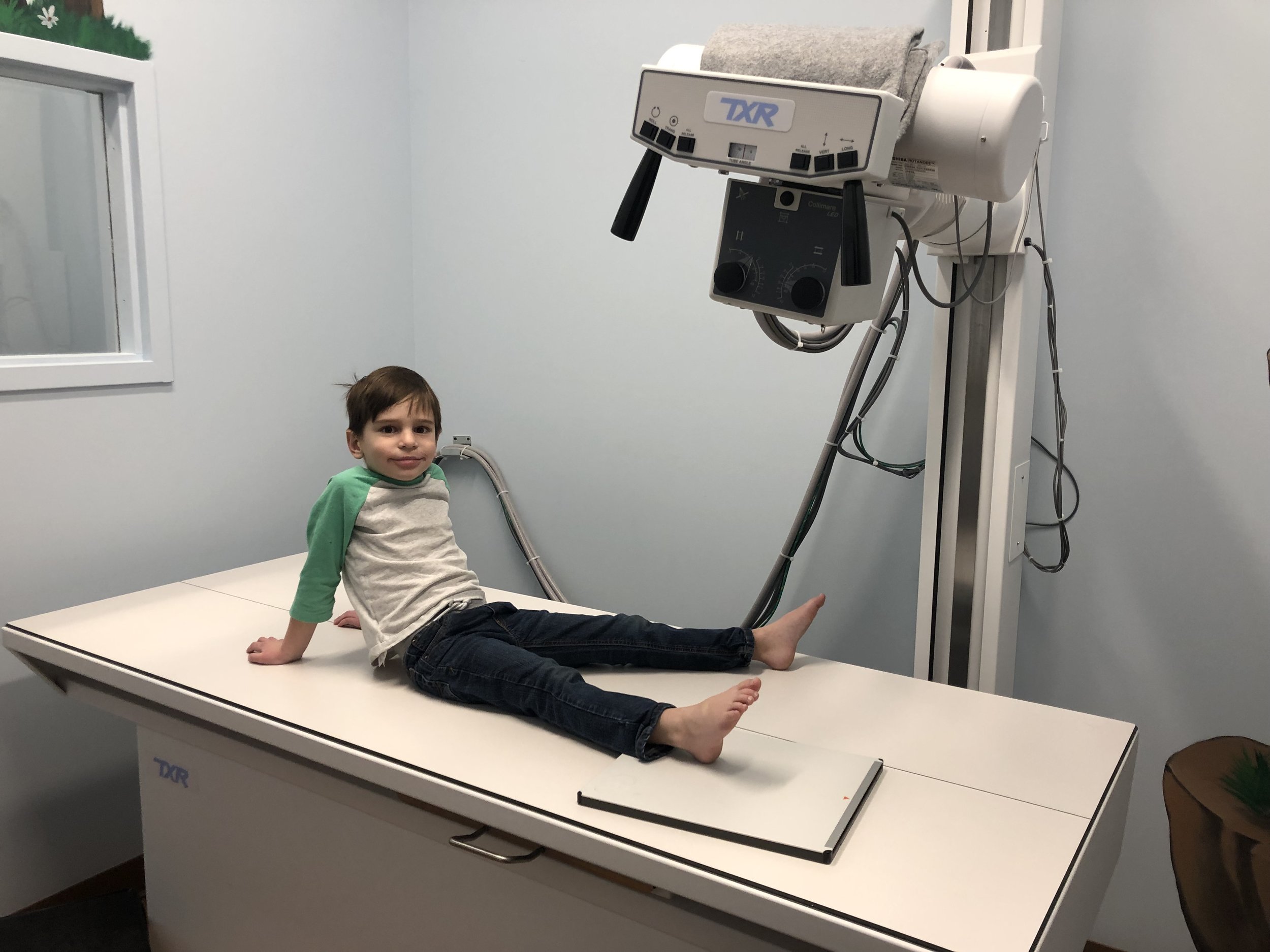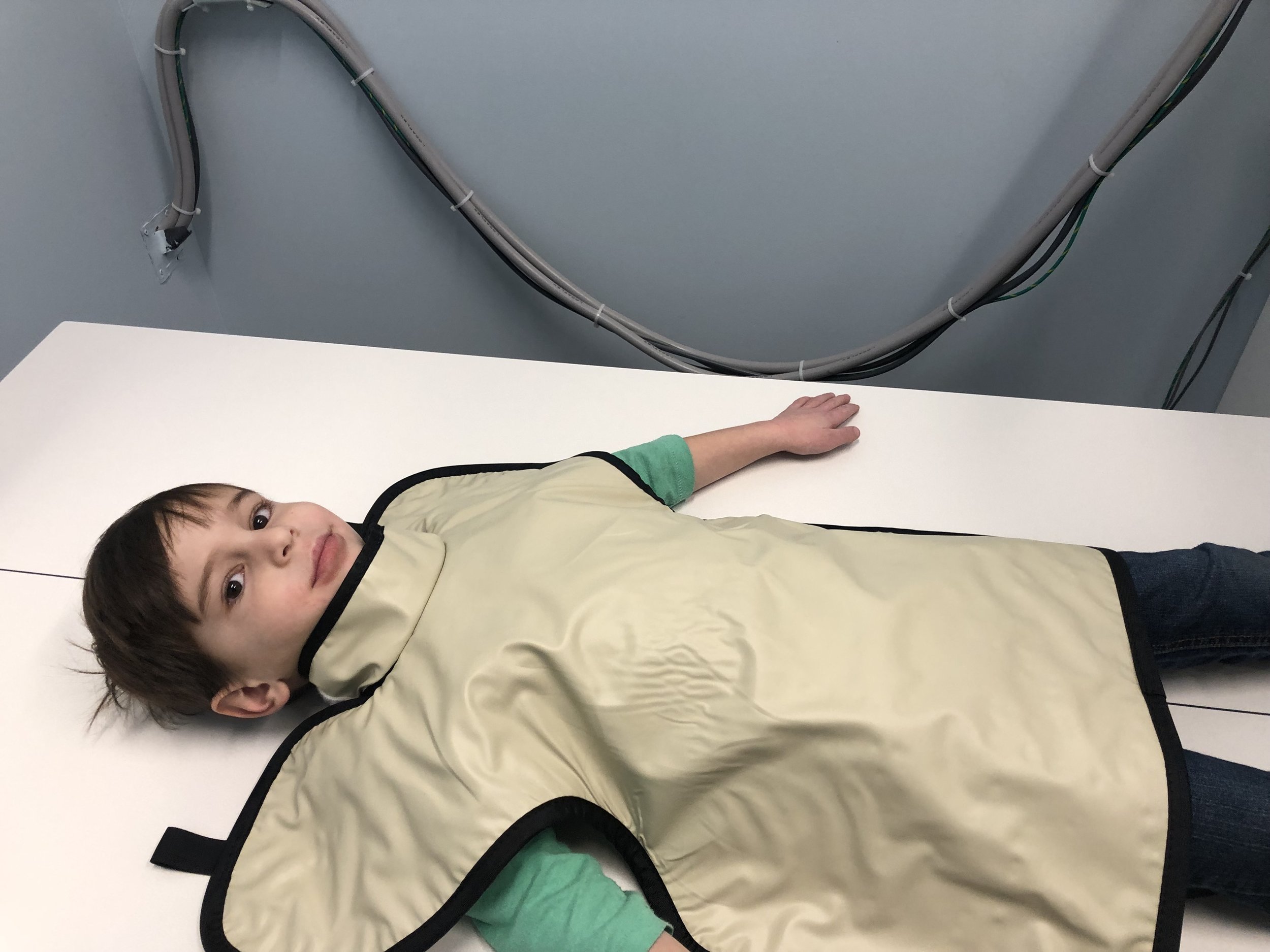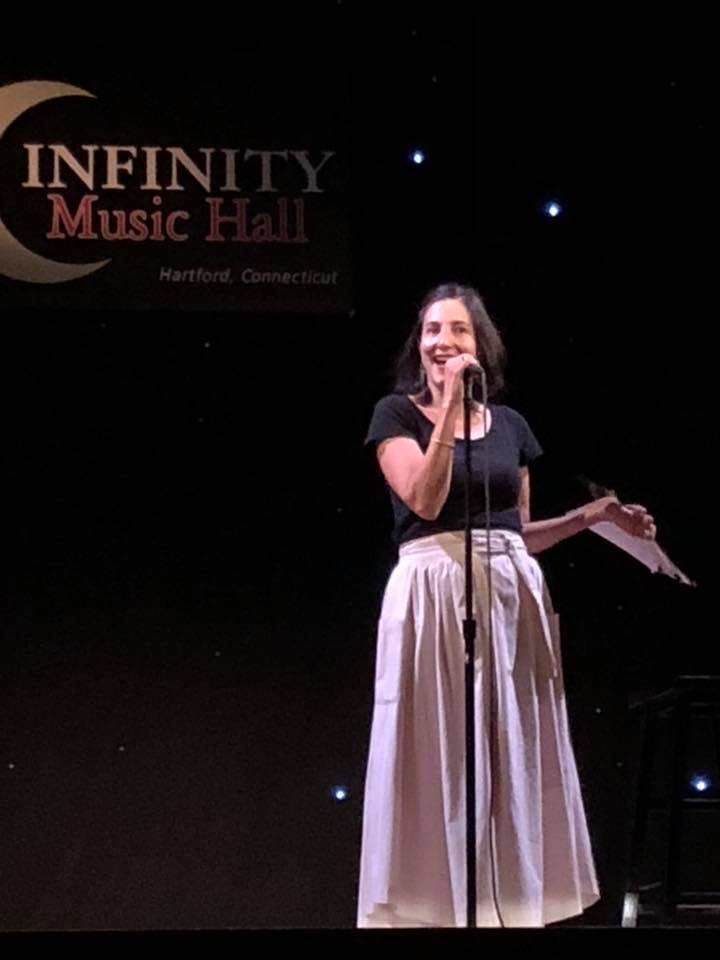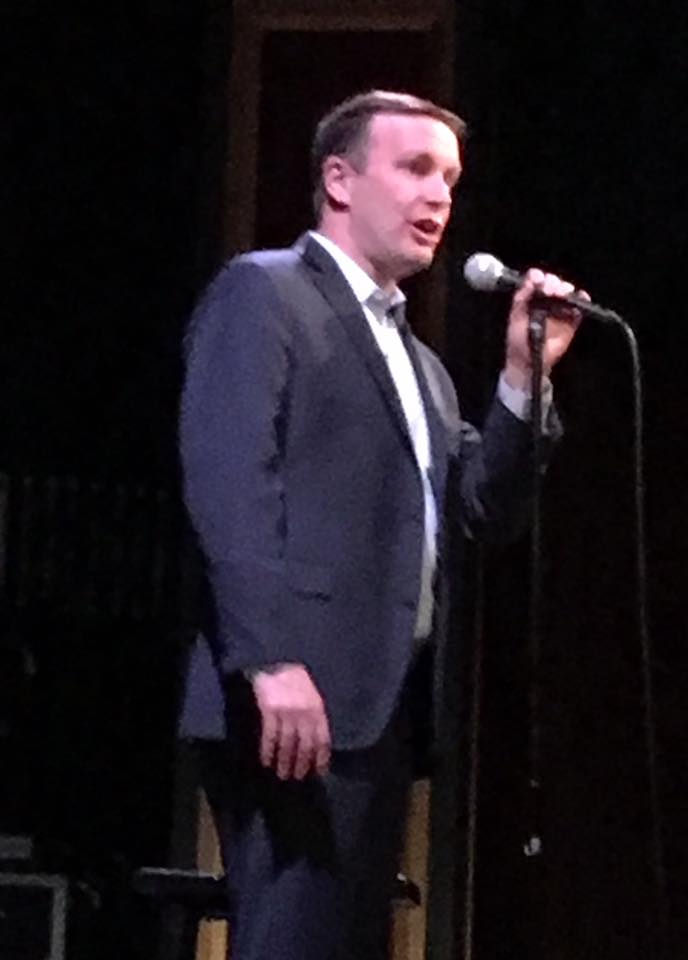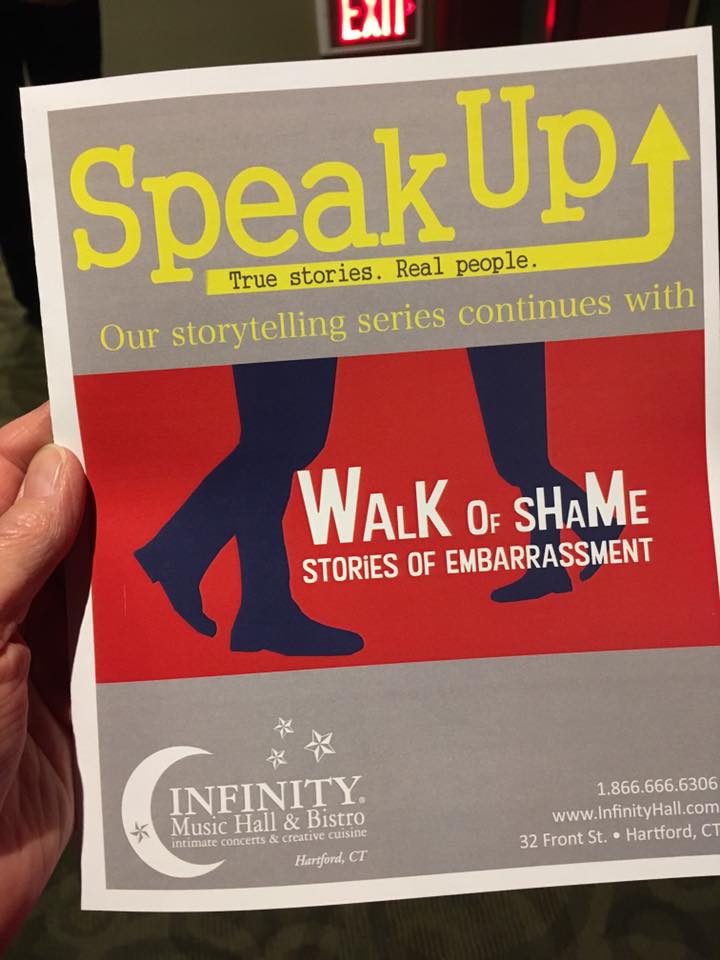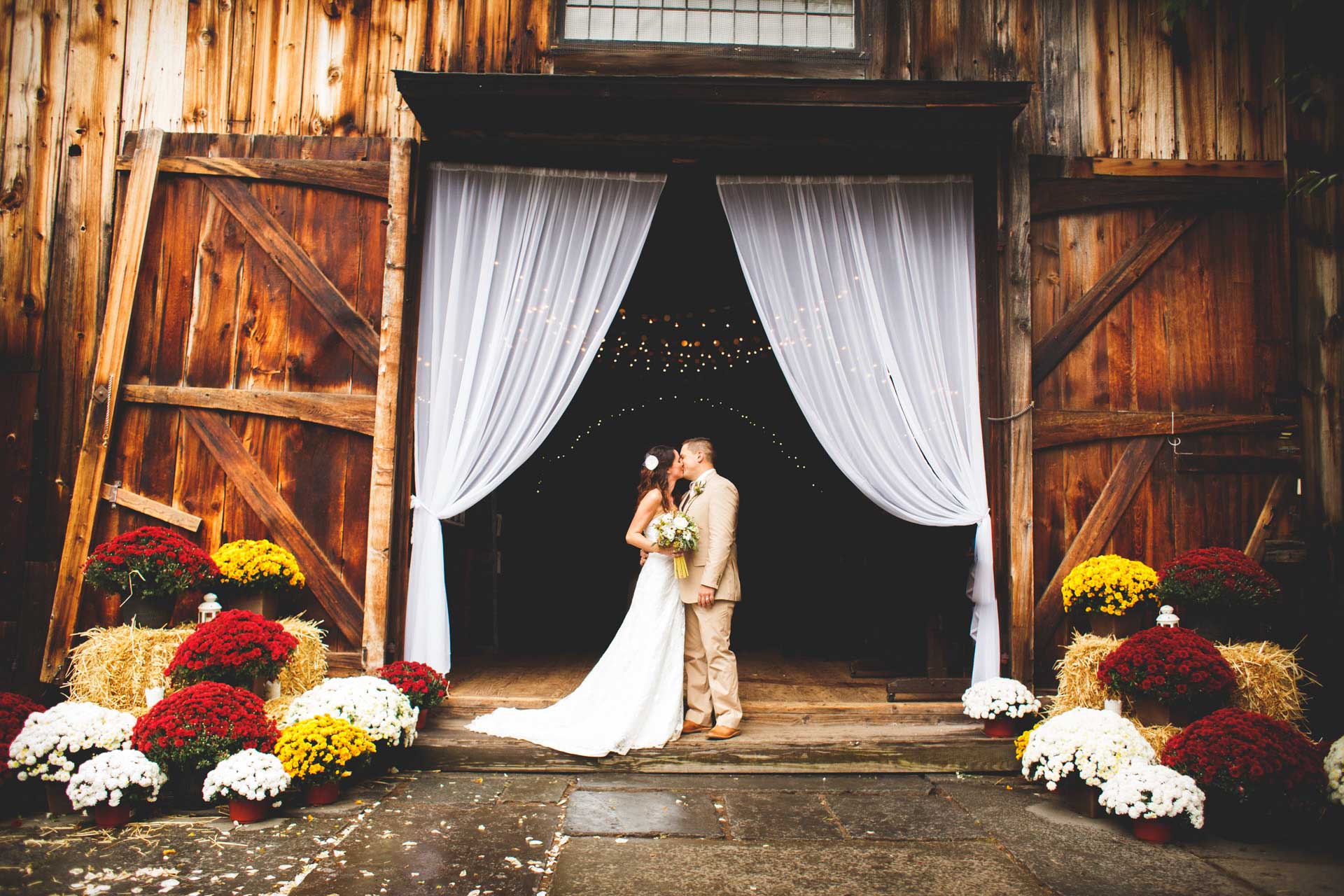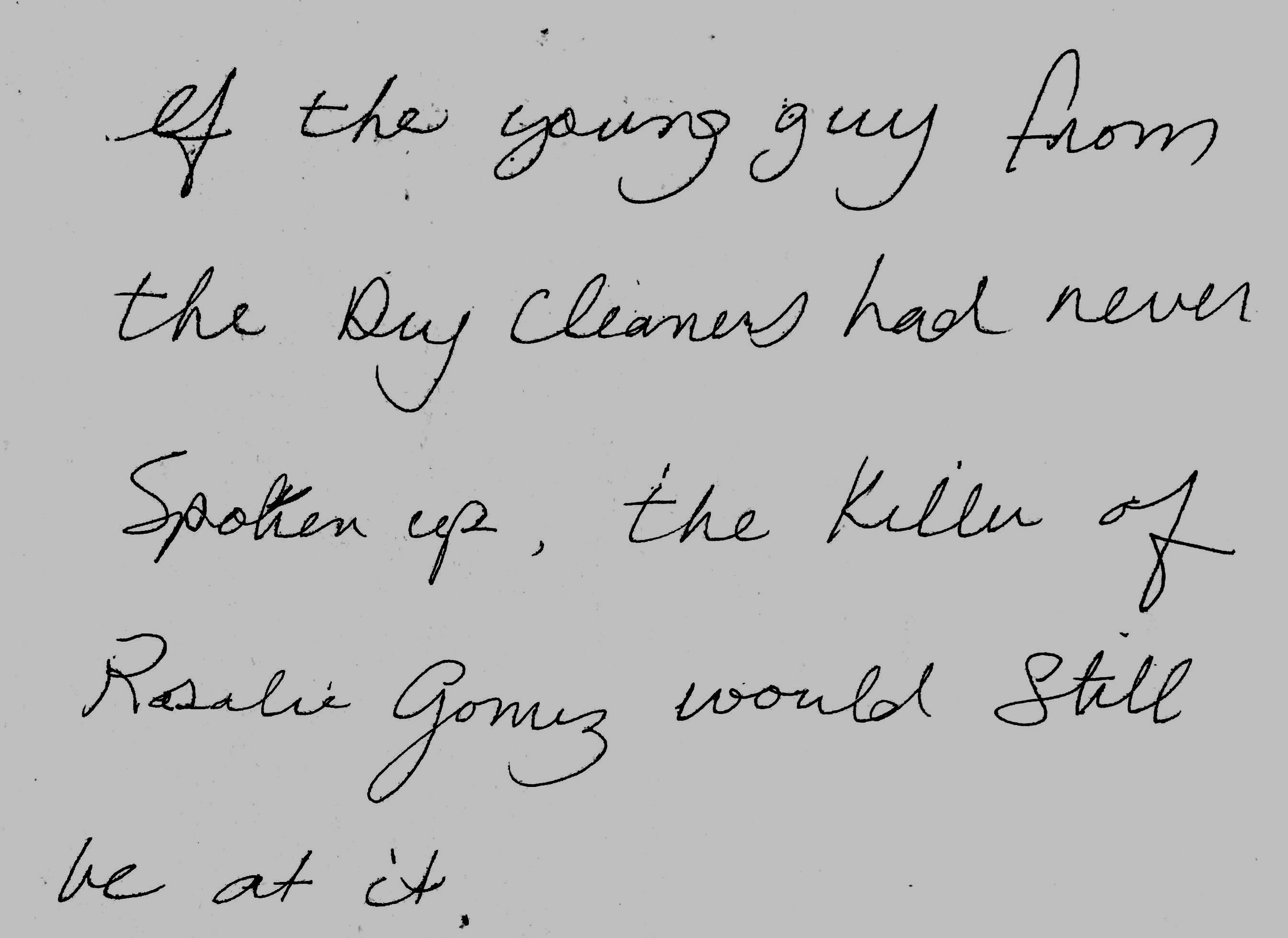Tonight I’ll be taking the stage at Infinity Hall in Hartford to tell a story for Speak Up.
It will be our 60th show, stretching back to April of 2013 when we produced our very first show in an art gallery at Real Art Ways, and I have told a story at every one.
In addition, I’ve also told stories at all five of our Speak Up - Voices of Hope co-productions, as well as showcases for Unified Theater, West Hartford Public Schools, and Kripalu Center for Yoga and Health,
That’s a lot of stories. In that time, I have only repeated stories twice.
Once accidentally, and once at Space Ballroom, our new venue in New Haven, CT, where we will be bringing stories first told in the Hartford area to a new audience.
Add to that the 22 Moth GrandSLAMs and 66 Moth StorySLAMs, half a dozen Moth Mainstage performances, and dozens of one-off shows. Some Moth stories have migrated to Speak Up, and some Speak Up stories have migrated to The Moth, of course, but it’s still a boatload of stories.
In all, I have told 116 different stories on stages around the country and the world.
“How do you find so many stories?” I am constantly asked.
My usual answer is Homework for Life, an exercise that first developed for myself and then began teaching. Add to that two other exercises that I detail in my book Storyworthy, and that makes up the bulk of my story finding techniques.
I also remember a lot. I have one of those memories for moments in my life. My sister is the same way. We simply recall more of our past than most people. Part of it has to do with the fraught, strange, challenging, ridiculous, and trauma-filled past that we both share.
If your life hasn’t been lovely and idyllic, you’re likely to remember more of it.
But also this:
I relentlessly look for stories. I seek them out. I turn over rocks to find them. So when I see this amusing carousel sign last weekend, I turn over a rock. I ask myself:
“What inappropriate things have I put in my mouth?”
Some have already been told onstage.
I swallowed a penny when I was about seven years-old, and I won a Moth StorySLAM with that story.
I choked on a bay leaf (and nearly had my chest cracked open by surgeons) about ten years ago. I told that story at Speak Up last year. I’m still waiting for the right moment to take it to The Moth.
I once drank spiked punch from a trashcan that contained a block of ice with roadkill at its center. I told that story at The Moth way back in 2011, failed to hear the timer, and spoke for eight minutes. I’ll need to re-tell that one someday.
I was once tricked into eating my pet rabbit by a girlfriend’s father. I won a Moth GrandSLAM with that story this year.
But then I thought:
I sucked my thumb well into third grade and only quit when a teacher shamed me, which led to me punching a kid in the head. That’s a story.
I once drank a mug of communal leftover drinks at a bachelor party and got so drunk that I started running around the VFW thinking I was being chased by evil men in bear suits. I also gave a guy a nickname that night that stuck for the rest of his life. That’s a story.
When I was a boy, I took communion at the Catholic Church, trying desperately to fit in but not realizing why I was even in line and what I was about to receive. The priest placed the wafer on my tongue, and I was so disgusted by the taste and the meaning of the ceremony that I spit the half chewed wafer into my hand and stuffed it into a Bible. That is a story.
At my best friend’s wedding, my friend, Scott, and I engaged in a stupid drinking competition which led me to drink 22 kamikaze shots over the course of eight hours and still lose the competition. That is a story.
Then I recalled the time about 15 years ago when my dog, Kaleigh, ate a Sudafed gel caplet. When I called the veterinarian (at 10:30 PM) to find out how serious it might be, she said, “You have about 10 minutes to get her to the hospital before her heart explodes.” That’s a story.
One sign. Five stories. Not bad.
Granted, the ability to craft these moments into full-fledged stories isn’t something everyone can do, but read my book, take a workshop or two, and start listening to stories like I do, and you’ll eventually be able to.
But the important part is to look for stories. Open your mind to them. Ask yourself questions. Explore your past. Until I saw that sign, I had forgotten four of those stories completely, and I hadn’t thought about the fifth in years. Even if I never tell them on stage, I’ve recaptured little bits of my life. I turned over a rock and found more of myself than I knew existed.
I love that. You will, too.



